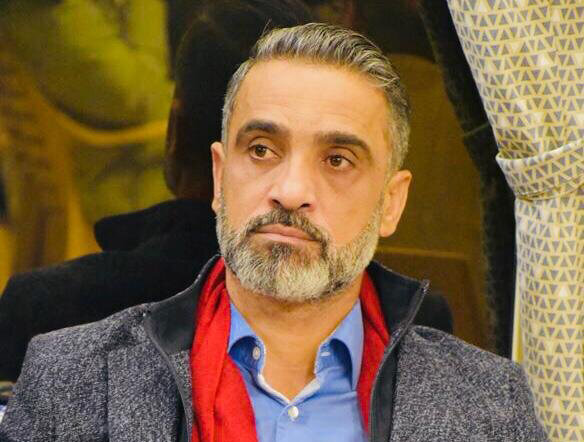By Mohammad Mazhari
TEHRAN - A Lebanese political researcher says that Iran proved that it is a loyal friend to Lebanese people and never spare effort to help Lebanon in critical conditions.
“Iran is a loyal friend of the Lebanese people, and it will not hesitate to provide aid to end the crisis that is ruining peoples’ life,” Tariq Aboud tells the Tehran Times.
The Lebanese Hezbollah has vowed that Iran would send fuel to Lebanon which is facing economic collapse and serious shortages of fuel for essential services.
“This initiative must be read in the context of the confrontation between Resistance Axis and Washington, which wants to bring the peoples of the region to their knees, from Tehran to Baghdad, Sana'a, Damascus, and Beirut. But they failed and this will never happen,” the professor at the Lebanese International University notes.
Following is the text of the interview:
Q: What are the main roots of the fuel crisis in Lebanon?
A: The main roots of the fuel crisis are a monopoly, as the laws in Lebanon prevent any side outside the oil and gas cartel from entering the market and working to compete with the oil cartel.
At the same time, the groups that are directly connected with the power centers in the country and the deep state have taken the control of the Lebanese economy.
The second reason is the indiscriminate support by the Lebanese central bank for the fuel, without following specific and clear mechanisms that prevent monopoly, hoarding, and smuggling the fuel, which can lead to saving the treasury billions of dollars annually.
What happened in the past two years specifically relates to three purposes: the first is to increase the profits of the oil cartel in an imaginary way. The second is to make a profit from the people’s deposits in the treasury. And the third is to push towards societal chaos aimed at provoking unrest and riot in Lebanon.
Q: What are the implications of Hassan Nasrallah's move when he called for Iranian fuel?
A: The messages conveyed by Sayyed Nasrallah's initiative regarding Iranian oil is expressed on several levels:
First, Hezbollah never accepts to stand by and watch the collapse of the country and the humiliation of the people on the streets.
Second, Iran is a loyal friend of the Lebanese people, and it will not hesitate to provide aid to end the crisis that is ruining peoples’ lives.
Third, this initiative must be read in the context of the confrontation between the Resistance Axis and Washington, which wants to bring the peoples of the region to their knees, from Tehran to Baghdad, Sana'a, Damascus and Beirut. But they failed and this will never happen.
Q: How do you see the repercussions of sending fuel tankers by Iran to Lebanon? Have you seen any change in the postures of pro-West parties in Lebanon?
A: The parties allied with Washington have no choice, as they follow U.S. policies in the country. That is why they cannot modify their rhetoric because they need to express hostility towards Resistance Axis. It is natural that we do not see any change in their tone and behavior, but rather we will see greater brutality and more propaganda.
Q: Given that Lebanon is living under a shortage of fuel and electricity cuts, who are the parties that are trying to obstruct economic trade and cooperation between Tehran and Beirut?
A: They are the same sides that spare no effort to hamper economic trade between Beirut, Damascus, Baghdad and Tehran. They are mostly political parties that benefit from the current state of chaos. I am talking about money cartels that possess exclusive agencies. These cartels do their best to show that they are trustable for Washington.
Q: How can Hezbollah respond to Israel if the latter targets Iranian tankers en route to Lebanon? Do you expect a military clash?
A: The balance of power does not allow Israel to target the tankers, because the Americans do not want a new war in the region.
Therefore, I believe that the convoy of ships will arrive at Lebanon shores in peace, and will mark a major turning point in the political and economic situation of Lebanon.


No comments:
Post a Comment